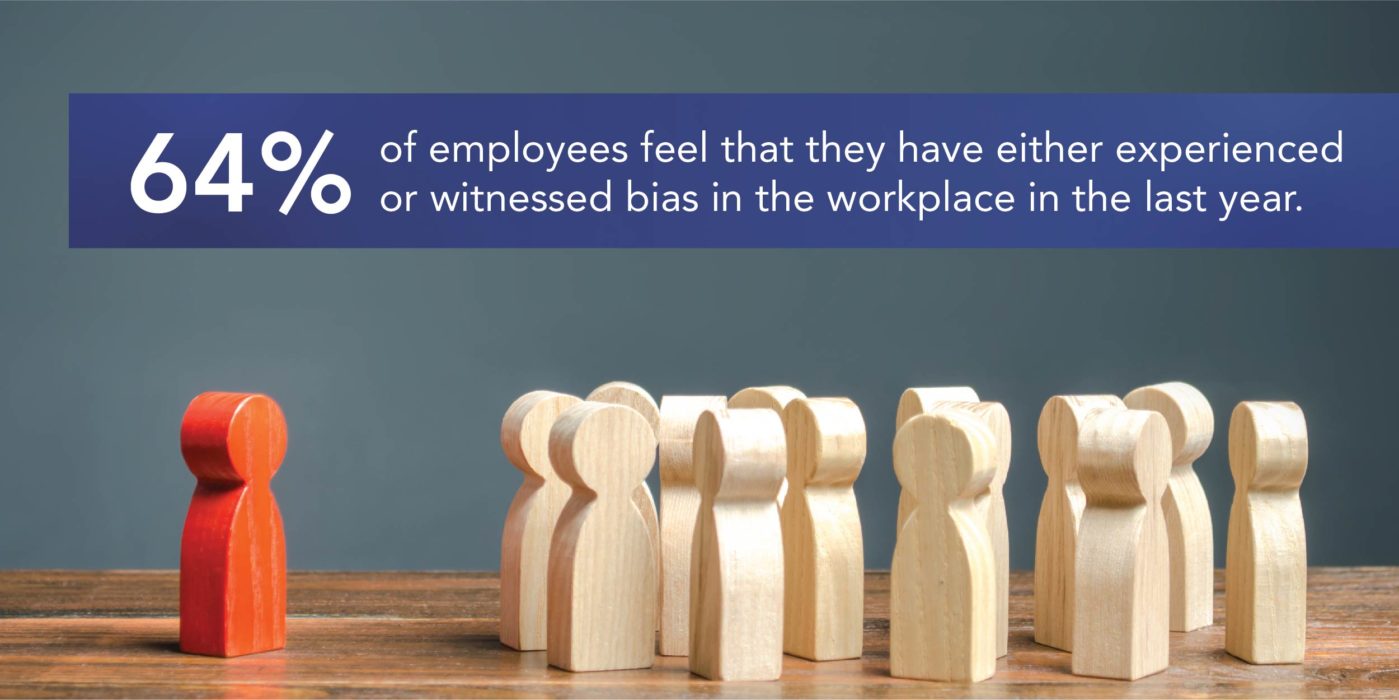
By Kevin Marrs, courtesy SBAM Approved Partner ASE
According to a recently released survey by Deloitte, employers appear to have made important strides related to workplace inclusion, although perhaps not having the effect they are striving for. Nearly 80% believed their company fostered an inclusive workplace and more than 80% agreed that their organizations provided opportunities to connect with others from different backgrounds. However, despite these improvements, nearly two-thirds (64%) felt that they have either experienced or witnessed bias in the workplace in the last 12 months.
For the purposes of the survey, “bias” was defined as an unfair prejudice or judgment in favor or against a person or group based on preconceived opinions. Among these professionals, 83% say that the bias was indirect or subtle – which is often framed as a microaggression. And, as you might expect, for those who experience bias it can take a toll. More than two-thirds of those who responded to the Deloitte survey indicated that it had a negative impact on how engaged they feel at work.
Other survey highlights include the following:
-
Age was the most frequent source of perceived bias among the survey participants. 43% of respondents reported experiencing age bias. Baby boomers reported the highest level of age-based bias (58%).
-
Millennials reported experiencing and observing the most gender-based bias. 41% of millennials reported experiencing gender bias and nearly half have observed it. Only 22% of baby boomers reported experiencing gender bias.
-
31% of respondents reported experiencing bias based on race or ethnicity. African Americans and Asians reported the highest rates of this bias.
Joe Ucuzoglu, Deloitte U.S. CEO, suggests that the, “survey clearly reveals that even well-intentioned organizations have much work to do to close the gap between overarching goals and the actual experiences of their workforce.” Adding, “It’s important to shine a light on the issues holding back inclusive change and leadership, which includes recognizing and addressing everyday subtle biases that can negatively impact an organization’s workforce.”
A major finding that emerged from the survey is that while most people believe they are allies, many do not address bias when they witness or experience it. An overwhelming 92% of professionals consider themselves an ally in the workplace, and 73% say they feel comfortable talking to others about bias in the workplace. However, only 29% of respondents say they actually speak up in the moment when they perceive bias, and nearly one-third ignore it.
Encouragingly, 65% of respondents say they have confided in their colleagues or manager when they experienced or witnessed bias, highlighting the importance of courageous conversations and supporting others.